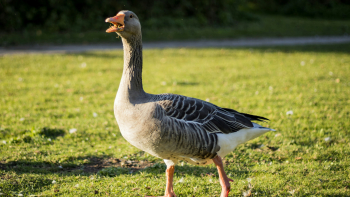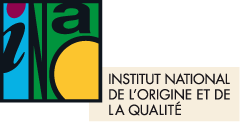This article is older and has been archived.
It remains accessible, but the information provided may be out of date or incorrect.
Defense and management organization
Temporary changes to specifications linked to the highly pathogenic avian influenza (HPAI) epidemic [ODG].
Following the detection of numerous cases of highly pathogenic avian influenza (HPAI) in migratory wildlife, and in order to prevent the outbreak and development of animal diseases on farms, as well as the risk of spread, the epizootic risk level has been qualified as "high" throughout mainland France by order of order of November 4, 2021, and requires poultry to be sheltered.

Poultry sheltering methods have been adapted to take account of production conditions, particularly for "free-range" farms, to ensure a high level of protection against the risk of virus introduction into farms.
These measures have thus given rise to temporary modifications to the common production conditions for Label Rouge poultry products and the specifications for PGI products for sanitary reasons. Under conditions defined by the decree of September 29, 2021 on biosecurity measures, the range of gallinaceous birds reared in "free-range" conditions under Label Rouge, IGP, AOP may be reduced on the basis of an authorization for observed animal welfare reasons, instructed by the DDecPP after a veterinary visit.
What is a temporary modification of specifications?
This is a very specific provision, provided for by French and European regulations in exceptional circumstances, and which sets a precise and transparent framework within which it is possible to temporarily modify a specification. It is the producers concerned who request a modification in view of the external difficulties they are facing. This request is then examined by an INAO body, where the technical expertise of the various members is used to assess any impact on the product. Only modifications with little or no impact are approved. This validation is then formalized and made public by an interministerial decree published in the JORF. In the case of PDOs and PGIs, this modification is then notified to the European Commission. Only requests that have been justified and whose impact has been assessed can be granted. It is therefore a modification of limited scope, validated by a group of specialists, of limited effect in time and made public.
These modifications enable products to retain their quality sign for several reasons:
- Because PGI, PDO and LR specifications do not boil down to the sole criterion of access to the range, but bring together a set of requirements on the method of production. The production conditions for poultry reared under SIQO are very different from those for standard poultry: rearing of hardy, slow-growing strains, use of a type of feed with a high cereal content, poultry rearing time more than twice as long, measures in favor of animal welfare and humane treatment, efforts by breeders in terms of demedication, limited size of buildings and farms, sensory controls and tests... which also contribute to the quality of these poultry.
- From a regulatory point of view, the sector complies with all health and labelling regulations for broiler poultry, in particular European marketing standards, which provide for the possibility of maintaining the "free-range" label for broiler poultry during the period of restriction, but in no case beyond 12 weeks, in the event of veterinary restrictions having the effect of restricting poultry access to free-range, in order to protect public and animal health... For laying hens, if measures adopted under Union legislation require that hens' access to open-air areas be restricted in order to protect public and animal health, eggs may be marketed as "free-range eggs" despite this restriction, provided that laying hens' access to open-air areas has not been restricted for a continuous period of more than 16 weeks. This maximum period starts from the date on which access to outdoor areas for the group of hens in question, set up at the same time, is effectively restricted.
- In order to limit the risk of HPAI spreading, in situ controls of farms by certifying bodies and producer groups have been suspended since December 21, 2021, until further notice. They will be replaced by remote documentary controls. On-site inspections will resume as soon as the risk level has been reduced.
Find out more about HPAI on the French Ministry of Agriculture website
